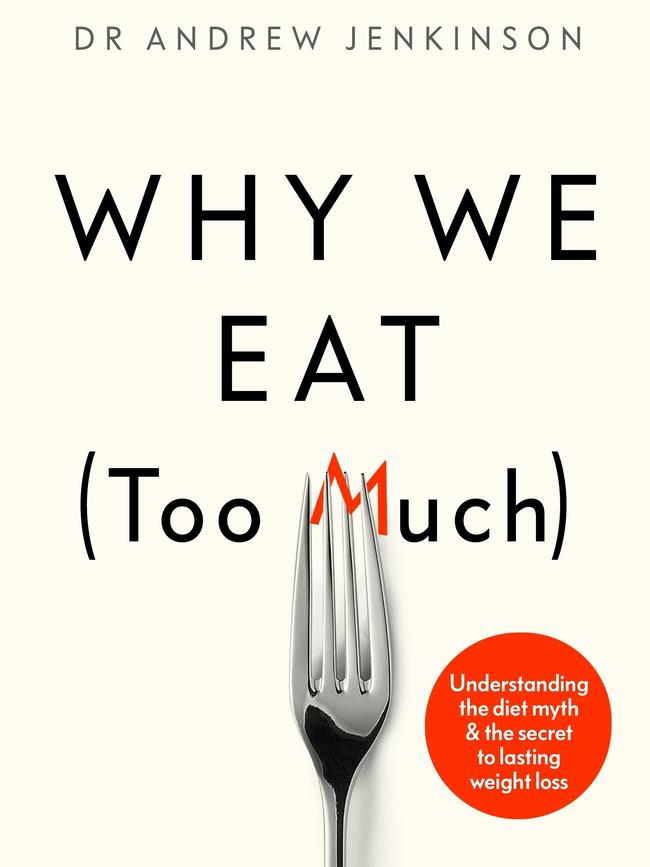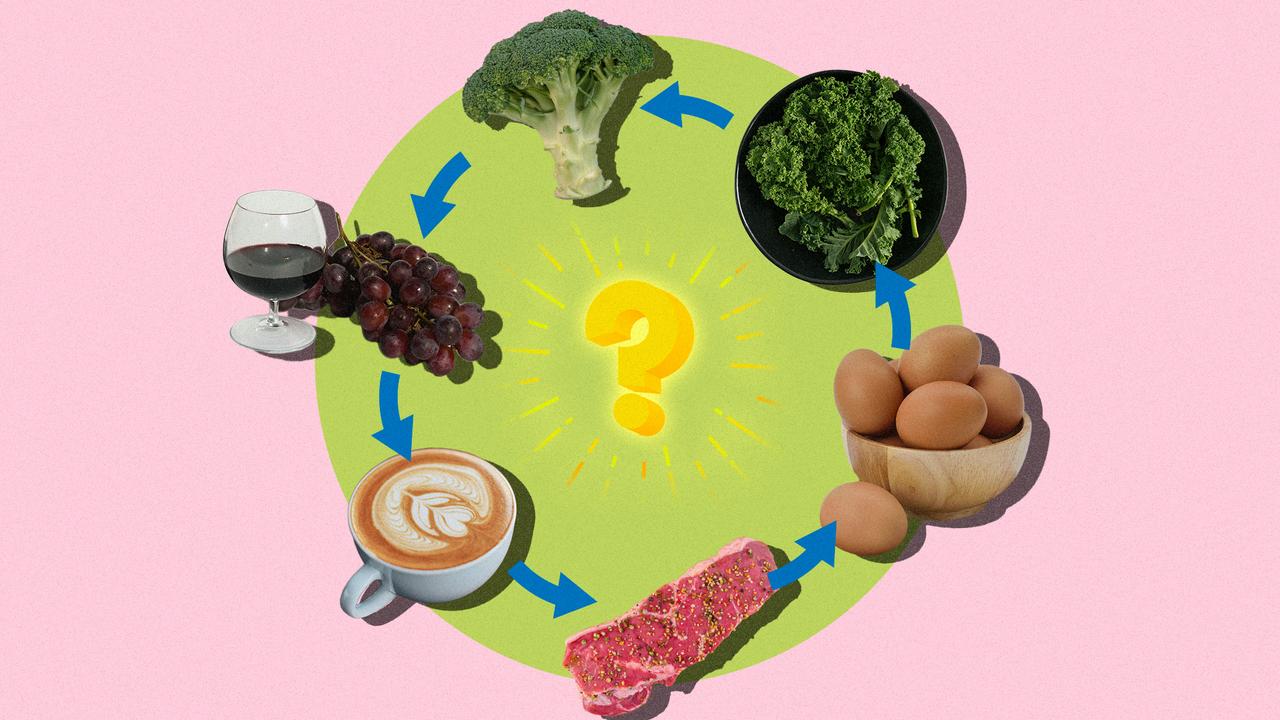Why low-calorie diets are a disaster for our bodies
A new book shows counting calories and switching to processed foods is wrecking our bodies.

It’s a new year, and time for new diets and new theories on why the world is getting inexorably fatter. Evenings out are not a lot of fun. I am surrounded by friends looking glumly into their waterglasses over dinner, refusing wine and cheese, butter and steak, looking anxiously at the apps on their wrists to check whether they’ve hit 12,000 steps or 1200 calories.
Others decide not to come out at all. Why be dull in company when they can be scourging themselves with a couple of hours at Pilates or the gym?
Andrew Jenkinson is a bariatric surgeon who has spent 15 years studying this issue, treating people who’ve been tortured beyond endurance by trying to control their weight. His agonised patients have been reporting that they do what’s recommended, losing weight on any and every diet, only to gain it all back and more. Jenkinson began to wonder why. In his new book, Why We Eat (Too Much), he has concluded that most official advice about diet, exercise and health is wrong.

A calorie is not just a calorie, regardless of where it is from. A carbohydrate-based, low-fat, meat-minimising regime is wrecking our bodies. Saturated fat from steak or butter does not make us fat, and the processed vegetable oils we’ve been advised to eat for years are a terrible substitute.
“Eat less and exercise more” is misleading and simplistic. That’s not how bodies function. Low-calorie diets are a disaster. They work in the short term, only to rebound as the body determinedly lowers its metabolic rate and ups its fat storage to protect against future famines.
Jenkinson wants solutions because he knows how recent and overwhelming the global weight problem is. Obesity only began to climb in the late 1970s, after the US produced guidelines recommending diets low in saturated fat, and the sugar, oils and processed food in the world’s intake started to soar. That is what is disrupting our bodies’ in-built weight controls. Now most of us live in obesogenic environments, fighting fatness, surrounded by unnatural food and plagued by newly widespread diseases: high blood pressure, heart disease, type 2 diabetes, depression and cancer.
The consequence is that the life expectancy for a working-class British man is 73, the same as for a Victorian man once he had survived past the age of five. Medical advances have been nullified by lifestyle diseases that healthcare systems are struggling to treat. The big question Jenkinson asks is: shall we simply firefight? Or deal with the cause?
His key insight is that weight isn’t chosen by our conscious mind. Our bodies are designed to keep our weight at a set point. That set point, dictating how much fat we carry, how hungry we feel and whether our metabolic rate ratchets up or down in response to diets or overeating, is controlled by chemical messages from our unconscious brain. We can override those in the short term but in the long term the body’s insistent demands and mechanisms always triumph.
That set point is decided by our environment, history and genes. People with thrifty genes, because their ancestors survived inhospitable environments, such as Solomon Islanders or the descendants of transported slaves, will put on weight more easily, as will the children of obese mothers. Others will burn off excess.
In general, though, the sharp rise in sugar, carbohydrates and unnatural fats has created a mass disruption of that set point upwards. Losing weight is not a matter of willpower but of resetting it downwards, changing the environmental signals the body receives. That’s what Jenkinson prescribes.
His message is for individuals wanting help, not industry or government, who may block their ears. It’s one of enjoyment, not deprivation, summed up by “eat more, rest more”. The first priority is to slash insulin, which drives fat storage. Sugar, corn and modern bread are banned but he doesn’t advocate the misery of a high-fat, low-carb ketogenic diet. Potatoes and rice are fine.
His next priority is to rebalance our essential fats, omega 6 and omega 3. Humans evolved to eat 3 and 6 in ratios of between 1:1 and 1:4. Omega 3 is in green leaves and vegetables, and anything that eats leaves or algae, from cows to fish. It cuts inflammation and keeps cells flexible. But it goes off fast and has no shelf life, so it has been ruthlessly cut from modern foods and from intensively farmed animals’ feed, replaced by omega 6 from seeds such as rape and soybean, which increase inflammation.
Jenkinson points out that countries that still have high omega 3 ratios, such as Japan, have low obesity. But in some Western cities the ratio of omega 3 to omega 6 is 1:50, meaning almost none of the critically necessary omega 3 is reaching our cells. We must reverse that.
He wants us to make time for the pleasure of preparing unprocessed, home-cooked food; good meat, fish, dairy and vegetables. Eating keeps the metabolic rate high and the rituals of having meals together makes us happy. Resting and sleeping more cuts stress and hunger hormones. Exercising three times a week, for 20 minutes, is vital, not to work off food directly but to build muscle, lower insulin and reduce the set point for our weight.
He promises no incredible solutions, no drastic fat loss, no scourging or short-term January misery, just a gradual improvement in metabolic health, weight and wellbeing over months and years. I hope he’s listened to.
The Times


